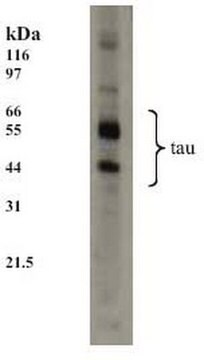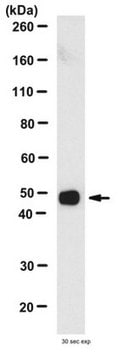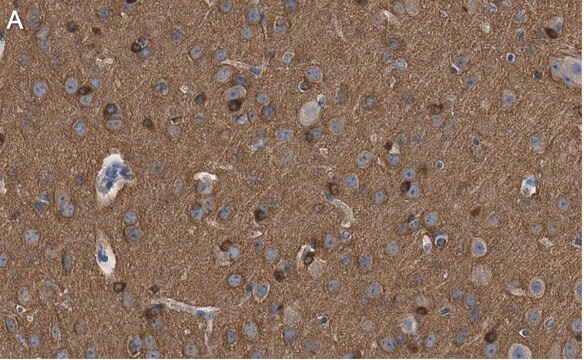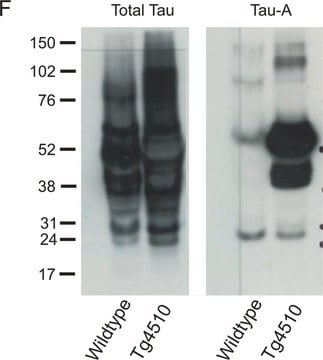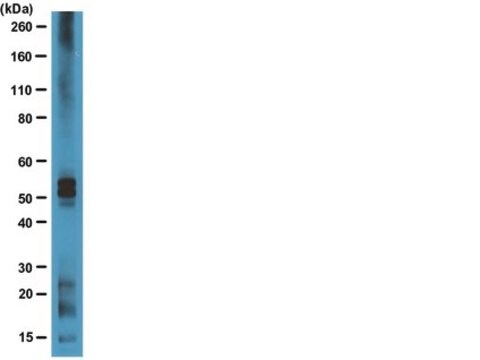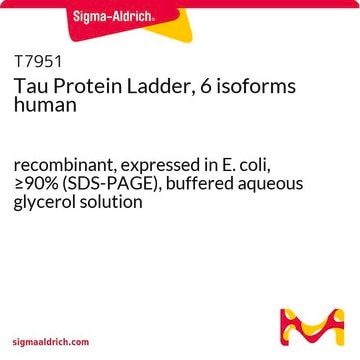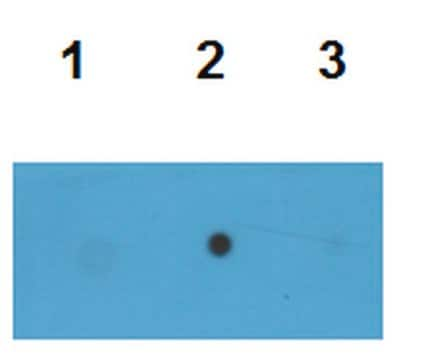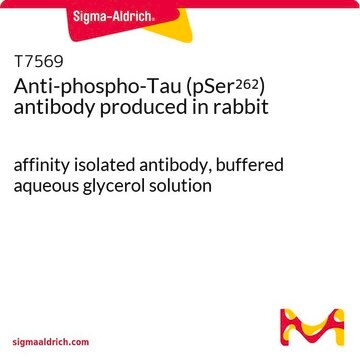MAB361
Anti-Tau Antibody, a.a. 210-241, clone Tau-5
ascites fluid, clone Tau-5, Chemicon®
Synonym(s):
G protein beta1/gamma2 subunit-interacting factor 1, Neurofibrillary tangle protein, Paired helical filament-tau, microtubule-associated protein tau, microtubule-associated protein tau, isoform 4
About This Item
WB
western blot: suitable
Recommended Products
biological source
mouse
Quality Level
antibody form
ascites fluid
antibody product type
primary antibodies
clone
Tau-5, monoclonal
species reactivity
mouse, human, rat, bovine
manufacturer/tradename
Chemicon®
technique(s)
immunohistochemistry: suitable
western blot: suitable
isotype
IgG1
NCBI accession no.
UniProt accession no.
shipped in
dry ice
target post-translational modification
unmodified
Gene Information
human ... MAPT(4137)
mouse ... Mapt(17762) , Mapt(281296)
rat ... Mapt(29477)
General description
Specificity
Immunogen
Application
A previous lot of this antibody was used in immunohistochemistry.
Immunoblot:
Recognizes phosphorylated and non-phosphorylated isoforms of tau ranging in size from 45-68 kDa.
Optimal working dilutions must be determined by end user.
Neuroscience
Neurodegenerative Diseases
Quality
Western Blot Analysis:
1:500 dilution of this lot detected Tau on 10 μg of PC12 lysates.
Target description
Linkage
Physical form
Storage and Stability
Handling Recommendations: Upon receipt, and prior to removing the cap, centrifuge the vial and gently mix the solution. Aliquot into microcentrifuge tubes and store at -20°C. Avoid repeated freeze/thaw cycles, which may damage IgG and affect product performance.
Analysis Note
Brain Tissue, PC12 cell lysate
Other Notes
Legal Information
Disclaimer
Not finding the right product?
Try our Product Selector Tool.
Storage Class Code
10 - Combustible liquids
WGK
WGK 1
Flash Point(F)
Not applicable
Flash Point(C)
Not applicable
Certificates of Analysis (COA)
Search for Certificates of Analysis (COA) by entering the products Lot/Batch Number. Lot and Batch Numbers can be found on a product’s label following the words ‘Lot’ or ‘Batch’.
Already Own This Product?
Find documentation for the products that you have recently purchased in the Document Library.
Our team of scientists has experience in all areas of research including Life Science, Material Science, Chemical Synthesis, Chromatography, Analytical and many others.
Contact Technical Service